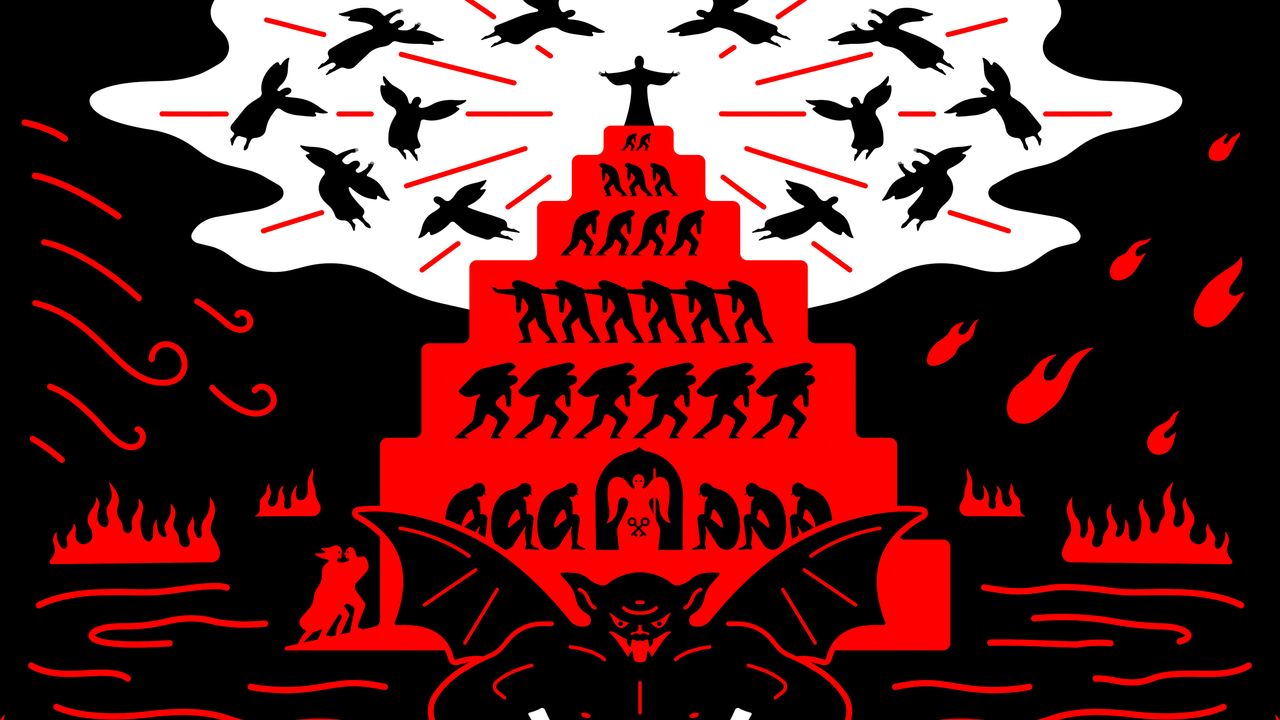Entertainment
Dante’s Legacy: How a Poetic Journey Influenced Humanity

In the spring of **1944**, during a brief moment of respite as a slave laborer in **Auschwitz**, **Primo Levi** found himself sharing Italian language lessons with a fellow prisoner. At that time, Levi, a young chemist from **Turin**, struggled with despair and the physical toll of starvation, yet he discovered solace in the lines of **Dante Alighieri**’s **Divine Comedy**. Specifically, it was the story of **Ulysses**, a figure who embodies a relentless quest for knowledge, that surfaced in Levi’s mind, providing a momentary escape from his grim reality.
Levi recounted how the lines of Ulysses, urging his men to seek knowledge and adventure rather than settle for complacency, resonated deeply with him. The words, “Consider well the seed that gave you birth: You were not made to live your lives as brutes, But to be followers of worth and knowledge,” became a beacon of hope. For Levi, these teachings not only illustrated the strength of the human spirit but also highlighted the peril of ambition that ultimately leads to downfall.
Dante’s Ulysses diverges from the epic hero depicted in **Homer’s Odyssey**. While Homer’s Odysseus is characterized by his longing to return home, Dante presents a Ulysses who chooses exploration over safety. This Ulysses sails beyond the known world, driven by an insatiable thirst for understanding, ultimately leading to a tragic end as he and his crew are engulfed by a storm, a fate deemed a consequence of divine wrath.
The **Divine Comedy**, composed in the early **14th century**, serves as a comprehensive exploration of the afterlife, split into three parts: **Inferno**, **Purgatory**, and **Paradise**. Dante, born in **Florence** in **1265**, presents himself as the central character, navigating through these realms under the guidance of **Virgil**, the great Roman poet. Virgil, representing reason and wisdom, aids Dante through the treacherous paths of Hell and Purgatory, but cannot accompany him into Paradise due to his pagan origins.
The narrative is filled with rich allegory and moral commentary. As Dante travels through **Inferno**, he encounters various sinners, each receiving punishment that reflects their earthly transgressions. The graphic depictions of their torments highlight Dante’s view on divine justice. Sinners such as corrupt clerics and political figures face eternal consequences, mirroring the corruption and moral decay Dante perceived in his own society.
In contrast, **Purgatory** offers a space for redemption, where souls who have repented can cleanse themselves before ascending to Paradise. This realm embodies hope, emphasizing the possibility of forgiveness and personal growth. As Dante climbs the terraces of Purgatory, he witnesses the struggles of those seeking to overcome their sinful pasts, resonating with the human experience of striving for self-improvement.
The final section, **Paradise**, reveals a realm of divine light and love, led by **Beatrice Portinari**, who symbolizes faith and spiritual enlightenment. Their journey culminates in a profound vision of God, though Dante grapples with complex theological questions that challenge his understanding of divine justice and mercy. Through his interactions with Beatrice, he navigates the intricacies of love and faith, ultimately reflecting on the human condition.
Dante’s work transcends its medieval origins, influencing countless generations of writers, philosophers, and artists. His insights into human nature and morality remain relevant, prompting reflections on contemporary issues. The poet’s ability to weave personal narrative with profound philosophical inquiry has made **The Divine Comedy** a foundational text in world literature.
In recent years, scholars and translators have sought to make Dante’s work accessible to modern audiences. **Prue Shaw**, in her book “Dante: The Essential Commedia,” offers a fresh perspective on the text, combining translations with contextual commentary. Similarly, **Mary Jo Bang** has infused contemporary references into her translation, bridging the gap between Dante’s time and today.
The enduring legacy of Dante Alighieri lies not only in his literary achievements but also in his exploration of the human spirit’s resilience. As Levi’s experience illustrates, Dante’s words continue to inspire hope and understanding, reminding us of the importance of knowledge, compassion, and the quest for meaning, even in the darkest of times.
-

 Top Stories1 month ago
Top Stories1 month agoRachel Campos-Duffy Exits FOX Noticias; Andrea Linares Steps In
-

 Top Stories1 week ago
Top Stories1 week agoPiper Rockelle Shatters Record with $2.3M First Day on OnlyFans
-

 Top Stories6 days ago
Top Stories6 days agoMeta’s 2026 AI Policy Sparks Outrage Over Privacy Concerns
-

 Sports5 days ago
Sports5 days agoLeon Goretzka Considers Barcelona Move as Transfer Window Approaches
-

 Top Stories1 week ago
Top Stories1 week agoUrgent Update: Denver Fire Forces Mass Evacuations, 100+ Firefighters Battling Blaze
-

 Top Stories1 week ago
Top Stories1 week agoOnlyFans Creator Lily Phillips Reconnects with Faith in Rebaptism
-

 Top Stories5 days ago
Top Stories5 days agoWarnock Joins Buddhist Monks on Urgent 2,300-Mile Peace Walk
-

 Entertainment6 days ago
Entertainment6 days agoTom Brady Signals Disinterest in Alix Earle Over Privacy Concerns
-

 Top Stories7 days ago
Top Stories7 days agoOregon Pilot and Three Niece Die in Arizona Helicopter Crash
-

 Top Stories4 days ago
Top Stories4 days agoCBS Officially Renames Yellowstone Spin-off to Marshals
-

 Health2 months ago
Health2 months agoTerry Bradshaw Updates Fans on Health After Absence from FOX NFL Sunday
-

 Sports4 days ago
Sports4 days agoSouth Carolina Faces Arkansas in Key Women’s Basketball Clash




